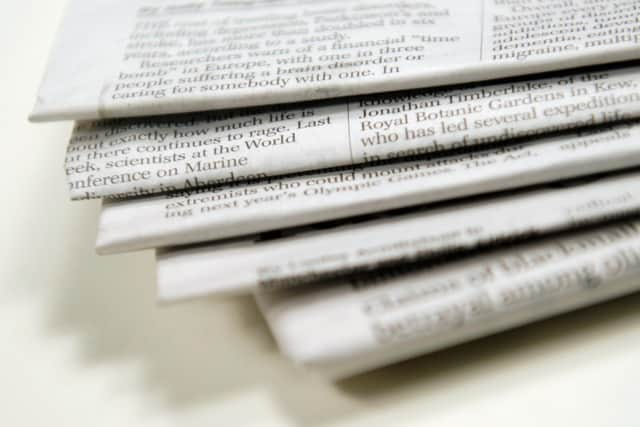Trusted sources of news must be the first place people go to for information as AI broadens the threat of disinformation ahead of election - Andrew Vine
It may be about the Israel-Hamas conflict, fanning the flames of anti-Semitism or Islamophobia. It may be racist or sexist. It may disparage the people of the north, or sneer at the poor. It may insult the royal family or raise fears for the NHS.
And it will all be lies, video or audio faked to make it look or sound as if Rishi Sunak or Sir Keir Starmer have said things neither would ever even think.
Advertisement
Hide AdAdvertisement
Hide AdBut there will be those who believe the lies anyway as they flash across social media, leaving denials trailing in their wake. They will confirm prejudices, foster cynicism about the decency and honesty of whoever is destined to occupy 10 Downing Street, and may even play a part in determining which it is to be.


The danger that fakery and deliberate deception represents to our society in the year of a general election was underlined last week by a worrying survey that found young people get most of their news from social media, and not from newspapers, their websites, or mainstream broadcasters.
Even though there is a degree of scepticism among those aged 18 to 24 about the trustworthiness of what they are seeing, they’re more interested in content than the truth.
That’s a gift to those who are deploying artificial intelligence to spread falsehood and division when the United States, as well as ourselves, approaches a general election.
Advertisement
Hide AdAdvertisement
Hide AdThe fakery may be the work of Russia, China, North Korea or the implacably anti-west regimes of the Middle East, but wherever it originates, it is finding a ready audience.
If anybody doubts that, they should look at what is already happening. In the run-up to Armistice Day last year, a fake audio clip emerged of London’s mayor, Sadiq Khan, apparently saying that pro-Palestine marches should take precedence over Remembrance events.
Mr Khan said afterwards that the malicious falsehood risked causing serious disorder on the streets.
Then in January, on the other side of the Atlantic, thousands of people about to cast their ballots in the New Hampshire Democratic primary received a phone call with a recorded message purportedly from President Joe Biden, urging them not to vote.
Advertisement
Hide AdAdvertisement
Hide AdIt was, of course, bogus and quickly revealed as such. But it is certain that at least some people believed it and did not vote.
Within days of that happening, the malign forces came especially close to home, when a fake Yorkshire Post story started circulating online aimed at dissuading foreigners from joining Ukrainian forces to fight the Russian invaders.
The Russians were undoubtedly the culprits, and it’s a backhanded compliment of sorts that they chose to hijack the good name of The Yorkshire Post, an unimpeachably trustworthy source of news, in an attempt to lend their nonsense credibility.
And it is the credibility of publications like this one that is the best defence against the dangerous tide of misinformation being unleashed against our democracies and elections.
Advertisement
Hide AdAdvertisement
Hide AdIt needs to be emphasised over and over again that trusted and established sources of news must always be – as they have been for generations – the first place to go for those wishing to know what is happening in the world, in their regions, and in the communities where they live.
Honesty and trustworthiness are the foundations on which our mainstream press and broadcasters stand. Rigorous inquiry to get at the truth informs the news they carry, and balance and fairness are at the heart of its telling.
This is a message which must be got out to the young especially, who need to realise that social media is not necessarily the benign friend they think it is.
On television currently, a government advert is running that alerts people to the risks of online fraud. In it, seemingly plausible figures surround a person sitting in a café, urging them to divulge personal details.
Advertisement
Hide AdAdvertisement
Hide AdIt’s a striking campaign, with a laudable aim. And it is surely time for something similar warning of the increasing potential of social media to carry inflammatory AI-generated falsehoods.
Publications like the one you are holding now, or reading online, are the champions and guardians of the truth. And in an age of lies and manipulation motivated by malice, they are needed more than ever before.
Comment Guidelines
National World encourages reader discussion on our stories. User feedback, insights and back-and-forth exchanges add a rich layer of context to reporting. Please review our Community Guidelines before commenting.